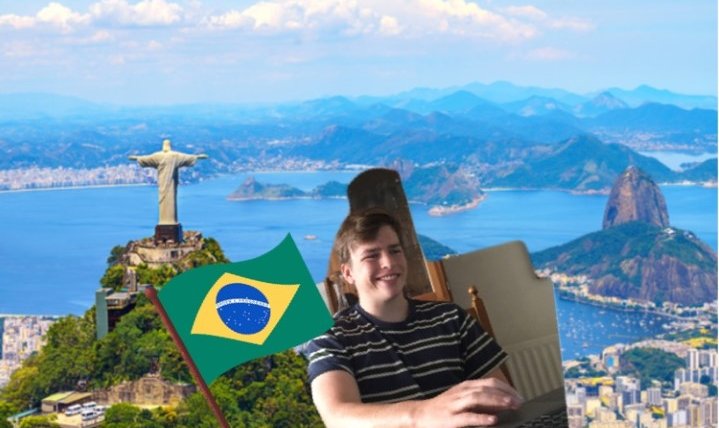Taking the place made available by the University of Southampton to the summer school run by the Universidade Federal de Minas Gerais (UFMG) was a complete no-brainer as a language student wishing to keep up my skills over a long summer break. I was particularly encouraged by how much I had enjoyed the previous summer course opportunity provided by the university the previous year to Braga in Portugal. I spent many hours searching for flights that would allow possible layovers in cities like Rio de Janeiro or São Paulo, and planning to participate in Brazil’s celebrated carnival atmosphere. Unfortunately, these hopes were dashed by Covid-19, which left me among the many with their summer plans cancelled. The summer course was instead delivered in an online capacity. It was clear that this was painstakingly set up over the short period of time between the cancellation of any physical attendance on the course and the starting date, by the brilliant UFMG staff. The revised course consisted of many different lectures delivered online over a two-week period, coupled with other culturally enriching activities.

On the first day we were treated to a wonderful yet eye-opening inaugural lecture about violence towards women by Patricia Campos Mello, a journalist who has been heavily critisised and victimised in a smear campaign by Bolsonaro and his supporters. She highlighted an important issue and debate that is often swept to the side by those in power and never truly dealt with in a meaningful way. The harassment of the president’s dissidents is encouraged by another issue in Brazil’s political climate. False news is allowed to spread like wildfire through various social media channels, allowing the harassment to continue.
On the second day we received an in-depth lecture on Brazilian history, my favourite of the entire course. This attempted to condense thousands of years of rich history into one lesson, starting from the dispersal of Native American indigenous societies over 12,000 year ago from 3-4 founding lineages of Asian settlers. This progressed to the eventual colonisation by Europeans, who divided up Brazil and converted it to Catholicism. The slave trade added a new demographic of people as well as introduced many cultural influences that pertain to the country today. Brazil eventually split from Portugal and was later one of the last countries to end slavery, a horror which was the backbone of its agricultural economy. Despite the introduction of many constitutions (7 in total!), inequality has persisted, almost ingrained into Brazilian society.
On the very same day we received our first Portuguese language lesson. This was definitely a weird experience as I was in the same class (real time) as others who were themselves participating in the course from home, in many different countries ranging from the USA to South Korea. Although not quite as fluid an easy as a normal classroom, we were all able to practise our speaking and fluidity in the language, brushing up any rust left after the break between finishing at Southampton and beginning the course. This was made easier by the fact that Southampton had finished the year online, giving me a bit of practice ahead of being thrown into the world of online learning amongst a group of strangers. The difficulty of the teaching was not overly challenging, yet extremely well delivered and high in quality. It also served as another means to discovering more about Brazilian culture such as barzinhos (which I would very much like to have visited in person) and the different popular foods served.
On other days we looked at topics such as the city in which the university is located, with the importance of Minas Gerais to Brazil, even hundreds of years ago. Likewise, we were introduced to the geography of the country, the economy, law, race, Brazilian society and more. This ultimately expanded our knowledge of the country’s culture and lifestyle. These further lectures were supplemented by other culturally enriching opportunities such as a movie night in which we all watched and analysed ‘A segunda mãe’, which explored classism in the country. We were also treated to a virtual tour of the Museu Inhotim.
On the last day of the two weeks, a Luau was held. This made a fitting virtual send off after a rewarding course, where people were invited to play any musical instruments and sing. This capped off the end to a brilliant experience (although I’m still totally not over being unable to go to Brazil, but assim é a vida!). One thing I’ve learned is that I absolutely, definitely, utterly can’t wait to go to there post-pandemic!
Calum Birse, University of Southampton, 3rd year Spanish & Portuguese
